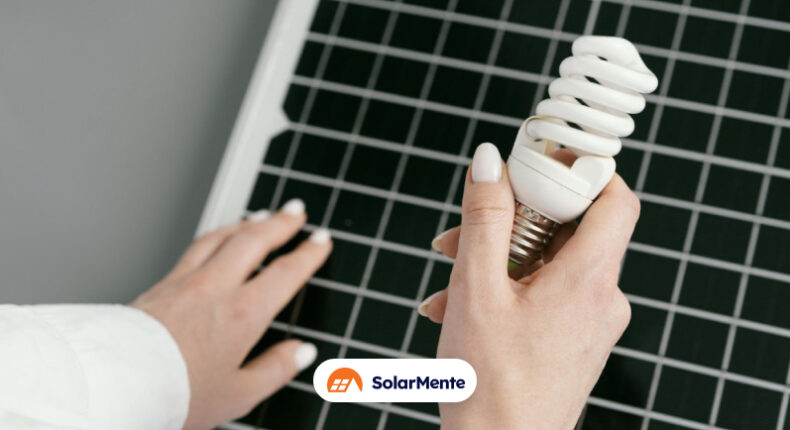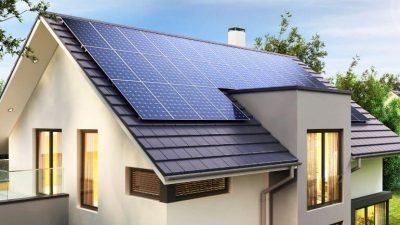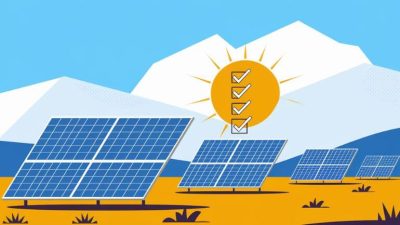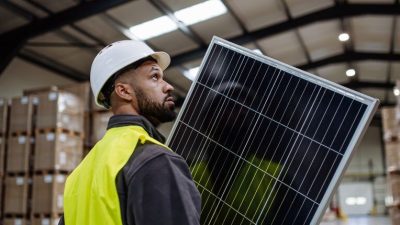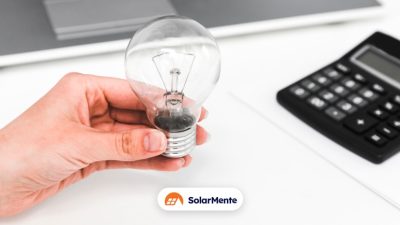Self-consumption tariffs with surplus compensation are those aimed at owners of solar panels and are designed to get the maximum performance and profitability out of the installation.
They allow users to receive financial compensation in the electricity bill in exchange for returning the energy produced by the panels and not consumed in the supply to the electricity grid.
The amount and conditions of the compensation will depend on each electricity supplier and the market where it is located, so here are the keys to choosing the most beneficial option for your home.
How much is the compensated kilowatt hour paid?
The price of the compensated kilowatt hour (€/kWh) is the most important aspect to consider when contracting a self-consumption tariff, as we have already seen, for each kWh returned to the grid, there will be an equivalent reduction in the electricity bill for that month.
To give us an idea, the price today is between €0.09/kWh and €0.15/kWh, which can vary depending on the electricity market we choose:
-
The regulated market markets only the PVPC tariff, regulated by the government. Therefore, both compensation and consumption have a different price depending on the electricity demand in the country and the cost necessary for its production.
-
The free market has a wide range of electricity tariffs. Each company independently establishes its contracting conditions and, in general, they usually establish a fixed price for the kWh of the self-consumption surplus.
Selectra, energy experts, recommend users to contract free tariffs for owners of solar panels. The stability of their prices also ensures the profitability of the surplus and a faster amortisation of the investment in self-consumption.
What are the best surplus compensation tariffs?
More and more electricity companies understand the importance of investing in more environmentally sustainable and cost-effective solutions for consumers.
Many are beginning to offer the possibility of compensating surplus photovoltaic energy in their services, bringing compatible electricity tariffs to the market. At present, the following tariffs stand out thanks to their competitive contracting conditions:
|
Surplus compensation tariff |
Price of energy consumed |
Price of surplus energy |
Virtual |
Contract telephone number |
|
SolarMente |
OMIE (variable) |
OMIE (variable) |
Yes |
SolarMente customer service: |
|
Solar Simply |
0,14 €/kWh |
0,10 €/kWh |
Yes |
Endesa customer service: |
|
Solar Plan |
Promoted hours: 0.14 €/kWh Non-promoted hours: 0.27 €/kWh |
0.10 €/kWh |
Yes |
Iberdrola Customer Service: |
|
Naturgy Solar Tariff |
Peak: 0,19 €/kWh |
0,11 €/kWh |
No |
Naturgy Customer Service: |
|
Solar Fixed price |
0,14 €/kWh |
0,10 €/kWh |
Yes |
Repsol Customer Service: 900 907 919 |
Virtual battery in self-consumption, is it interesting to contract it?
When contracting a self-consumption tariff, it is not only necessary to take into account the prices of the kWh compensated and consumed, it is also necessary to consider the possibility of including the virtual battery service in the contract.
This is interesting in installations where solar panels generate a lot of surpluses, because it allows the balance generated that cannot be compensated in the invoiced period to be accumulated in a virtual wallet, for use in subsequent months or in other supplies of the same owner.
In many cases, this makes it possible to get bills at €0 for life.
Frequently asked questions about surplus compensation
Can electricity be sold?
The sale or compensation of surpluses has been possible since the new self-consumption regulations were approved in Royal Decree 244/2019. This will allow you to reduce your electricity bill thanks to the energy produced and not consumed from your solar panels installation.
What does it mean to dump surpluses?
You can use the surplus solar energy generated by your photovoltaic system that you have not consumed:
Do without Store in a battery (if you have one) Discharge to the grid to receive financial compensation or sell the energy on the electricity market.
What is the price for surplus energy?
Currently, the price of surplus energy that you have not consumed is around 0.06 euros/kWh. This factor depends on the supplier with whom you have contracted the electricity grid.
How do I request compensation for surplus energy?
Once you have received the documentation issued by the Generalitat de Catalunya, it is time to obtain compensation for the surplus energy that your photovoltaic installation injects into the grid.
To do this, it is important that you contact your utility company in two steps:
Email. You can find your utility company’s e-mail address on any electricity bill. Then copy and paste the following message:
Hello,
I attach CIE, RAC and RITSIC of my photovoltaic installation to change my contract to self-consumption with surplus and simplified compensation mechanism. I am also enclosing an electricity bill so that you can see the owner, address and CUPS.
Thank you very much,
Please attach the three documents, especially CIE & RITSIC, together with an electricity bill so that you can identify the contract holder more quickly.
Telephone. Approximately one week later, please call the customer service of the electricity company directly and ask to change the contract to a self-consumption contract, in order to obtain compensation for the surplus energy.
Obstacles that the utility company may apply to the request for surplus compensation
Utility companies in Spain may request the D1 document, which is something they must apply to the energy distributor (which in Catalonia is e-distribución). If that is the case, please contact ATR-generadores.edistribucion@enel.com with a message requesting the D1 document.
Once you are notified that the D1 is ready, you can contact your utility company again.

